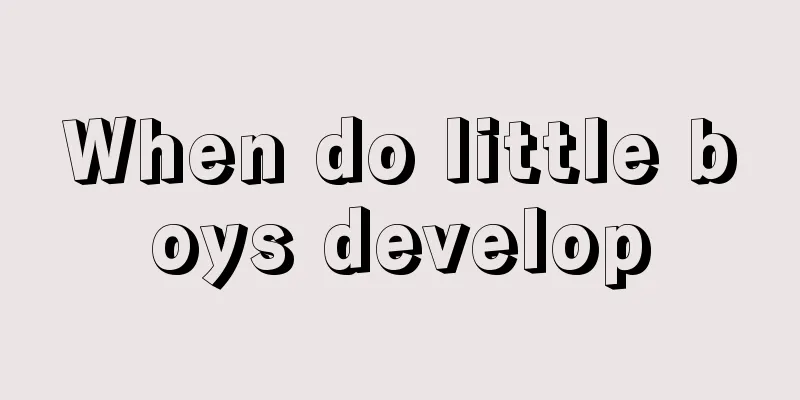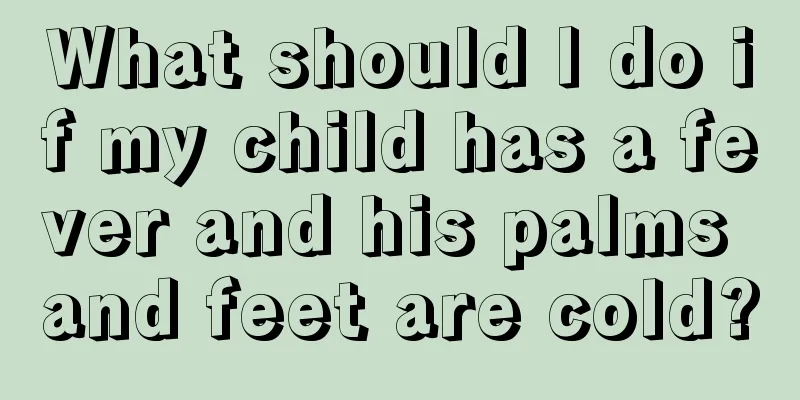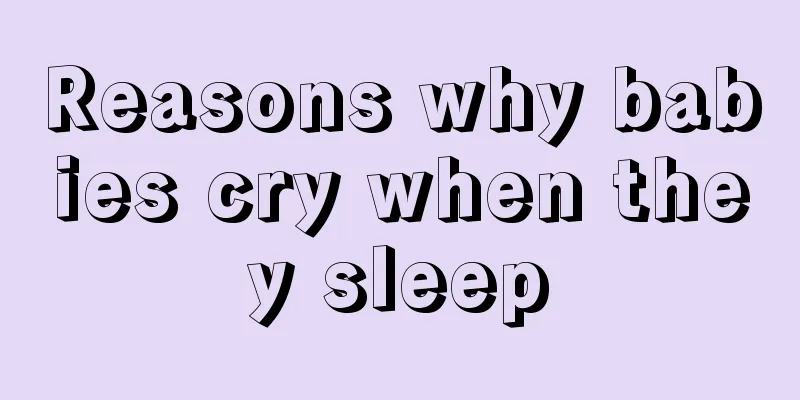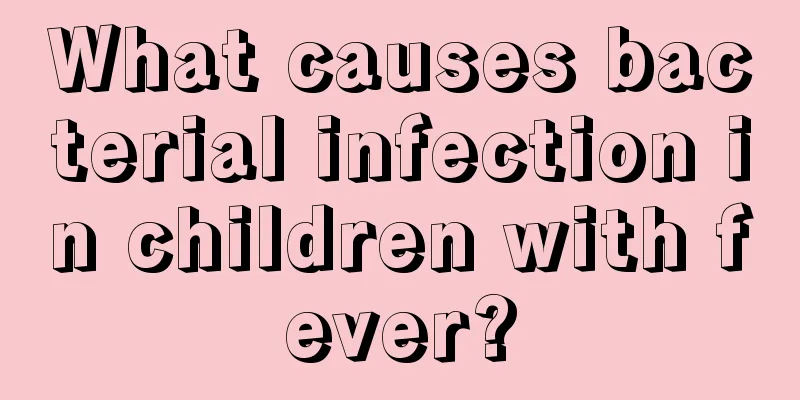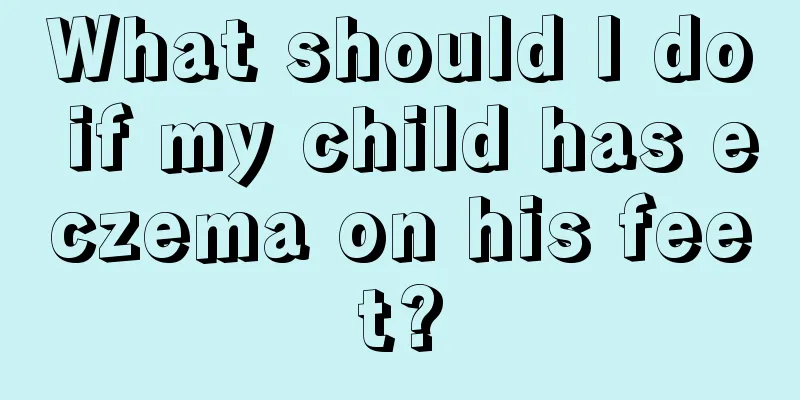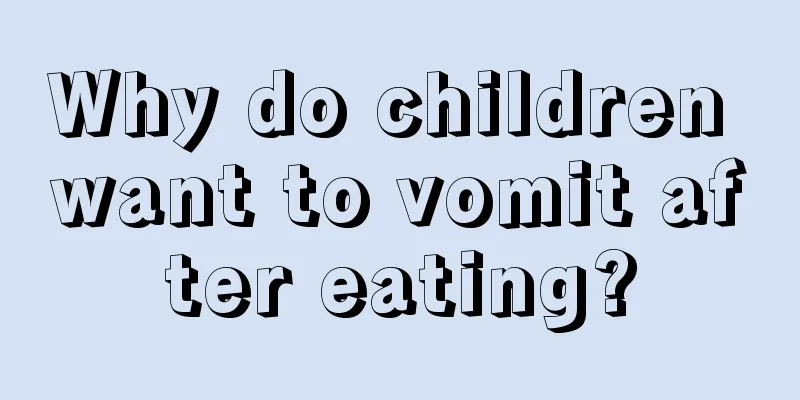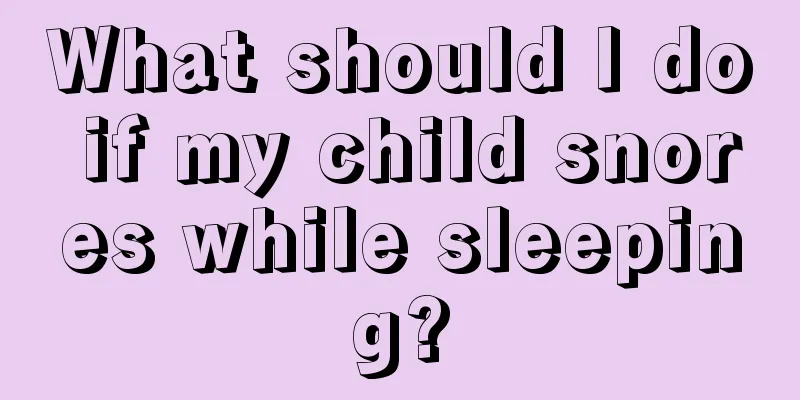What should I do if my 4-year-old child keeps coughing?
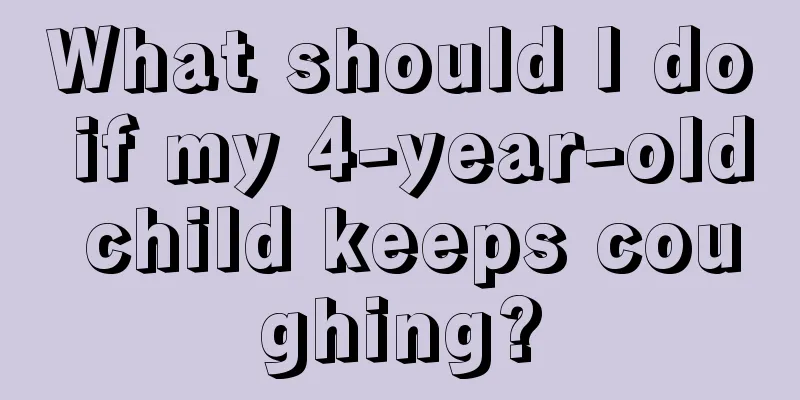
|
When a baby is 4 years old, generally speaking, all body functions are normal, but there is still a certain gap with adults. Some parents recently discovered that their 4-year-old baby has been coughing. After taking them to see a doctor, the baby still did not get better after taking medication. Hearing that the baby keeps coughing, the family must be very anxious. What should parents do in such a situation? What should I do if my 4-year-old baby keeps coughing? 1. Drink water reasonably, drink small amounts frequently. No matter what kind of cough it is, you should actively let your baby drink water, and don't wait until he is thirsty to think about drinking water. If babies drink enough water, the sticky secretions can be diluted and coughed out more easily. At the same time, drinking water can improve blood circulation and quickly excrete waste or toxins produced by the body's metabolism, thereby reducing irritation to the respiratory tract. 2. Eat a light diet and avoid raw, cold and greasy food. The diet for babies with cough should be mainly light, with more fresh vegetables and a small amount of lean meat or poultry eggs. Avoid greasy and fishy foods. Fruits are indispensable, but not too much. Do not eat oranges if you have a wind-heat cough. Avoid sour foods as they have the effect of astringing phlegm and are not conducive to eliminating phlegm. 3. Keep the indoor air fresh. Open windows regularly to ventilate the home and keep the indoor temperature moderate, which helps keep the respiratory mucosa moist and the cilia on the mucosa surface moving, which helps expel phlegm. 4. Focus on expectoration and use the medication with caution. The respiratory system of children is not fully developed, and they cannot cough up phlegm as effectively as adults, so phlegm is easily retained. If cough suppressants are given as soon as a cough occurs, the cough will be stopped, but the suppressed cough will make it more difficult to expel phlegm, which will result in blockage of the respiratory tract, not only making the cough worse, but also making it easy to cause lung infection. Therefore, children's cough should be treated with expectorant in the early stages. What to do if your baby has phlegm in his throat 1. Phlegm-slapping method When the child is coughing, let the child lie on his side or hold him in the position where he lies on his side. The parent slightly bends the five fingers of one hand, makes a fist, and gently pats the child's chest, sides and back. Pat your left side and lie on your left side, alternating between the two sides. The force of the slapping should not be too great, and it should be done from top to bottom and from outside to inside, in sequence. Pat each side for at least 3-5 minutes, 2-3 times a day. The back-patting method can not only loosen the phlegm in the child's lungs and bronchi, drain it into the trachea and discharge it, but also promote blood circulation in the heart and lungs, which is beneficial to the absorption of bronchial inflammation and enables early recovery from the disease. 2. Keep warm Because infants and young children have weaker immunity, they are more likely to catch colds and chills than adults, which can induce respiratory diseases such as tracheitis and bronchitis. Therefore, parents should take good warming measures and not let the baby catch cold. 3. Drinking water method For children who cough, the insensible water loss through the respiratory tract will be very high, and the airway will be relatively dehydrated, which can aggravate respiratory inflammation and the viscosity of secretions, making them difficult to cough out. Let the child drink more water, especially cold boiled water at about 23°C, which has a good moisturizing and physical therapeutic effect on the throat. Drinking more cold boiled water can dilute the viscous secretions, making them easier to cough out, which is beneficial for relieving cough and expectoration, and eliminating local inflammation. At the same time, cold boiled water can also improve blood circulation. |
<<: Massage for children to treat cough
>>: What to do if your child has a fever, cold, or cough
Recommend
How to hold a newborn baby
After ten months of pregnancy, many new parents w...
Can hydrocephalus in newborns be cured?
There are many causes of hydrocephalus, some are ...
Treatment of oral mucocele in children
We may have seen many children with oral mucocyst...
Why doesn’t my baby sleep well at night?
For some young people who have just become parent...
What food is good for students to nourish their brains?
During the critical period of learning and growth...
How to supplement the baby's anemia?
If the baby keeps suffering from anemia, it will ...
Why does a child bite his fingers?
Many new mothers always find that their children ...
How to exercise for children
Children can exercise together with adults, and a...
Several major hazards of eating chocolate for children
I believe everyone is familiar with chocolate. Ch...
What are the symptoms of children’s indigestion and cough?
There are many reasons that may cause children to...
Symptoms of excessive blood lead levels, normal functions are affected
Excessive blood lead means that the lead content ...
What should I do if my child has keratitis?
In life, eye diseases are quite common, especiall...
When does a child lose his teeth?
We all know that everyone has two opportunities t...
What causes indigestion in children?
In life, our mothers may not give their children ...
What to do if your baby sneezes and coughs
Newborns have relatively low immunity and resista...

